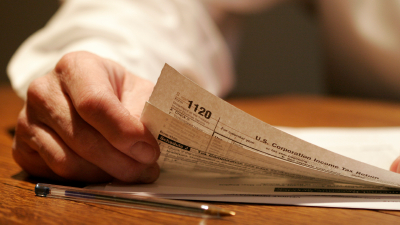
Starting a small business is no easy feat for owners, that’s why you have to be smart when it comes to finances if you want your company to grow. But when handling your employees or taking care of your products and services, it can get easy to forget to sort out your taxes amidst the chaos.
But with these effective tax tips, you can finally get your finances organized so you can glide right through tax season once it finally arrives.
1. Get familiar with financial jargon
If you didn’t come from an accounting or business background, filing your tax return can feel like you’re reading another language.
But if you want to get your business finances in order, you need to get familiar with accounting terms and concepts. Since this will make it easier for you to understand your small business’ financial status. Once you have the terminologies down pat, keeping your records and filing your taxes won’t be as challenging as before.
2. Separate your business and personal finances
When starting a small business, it’s important to keep your personal and business finances separate to make it easier for you to claim deductions on your tax return. Since one of the most common ways of getting in trouble with the Internal Revenue Service (IRS) is by having your personal expenses mixed into your business costs.
That’s why you should create a separate bank account and credit card for your business so your business tax records stay accurate and organized.
3. Keep your financial records straight
Tracking your expenses can get tedious when done constantly, but this will ensure you can get an accurate record of your business costs. Make sure to also keep all receipts for every business transaction so you can have a backup in case of an audit.
Plus, business expenses can also qualify as tax deductions so they’re a clever trick for reducing your taxes. But if keeping an organized record of your finances is challenging, you can always install an accounting software to make the process more efficient.
4. Maximize small business tax deductions
Everyone knows that opening up a business can get pricey because the cost can stack up. To help you get through your business’ starting stages, take advantage of several deductions that can effectively lower your tax bill.
Keep in mind that every deduction has its own set of qualifications, but expenses like rent, marketing costs, travel expenses, and business meals can be written off or deducted from your taxes. Do take note that you’ll need to itemize your deductions on your tax return, but the extra effort will be worth it once you see the reduced numbers on your tax bill.
5. Depreciate your fixed assets
If you’re thinking about purchasing properties or equipment to help expand your small business, take advantage of Section 179 deduction or bonus depreciation programs where you’re allowed to deduct the purchasing cost of your assets in the year you place them in service.
Section 179 allows your business to deduct up to $1,080,000 of property that’s placed in service during the tax year. While bonus depreciation lets your business deduct 100% of the cost of properties, machinery, equipment, and computer software that’s placed in service. Keep in mind that each program has a different set of requirements so you can only claim these deductions when they are qualified.
6. Set up a retirement plan
Whether you’re handling your business on your own or have a few employees, it’s always a good idea to set up a retirement plan. Any contributions you make will allow your small business to get a tax benefit and save you from employer payroll taxes.
Whether it’s a 401(K) or an IRA, offering a retirement plan can also make your business more attractive to your employees making them more satisfied to work with you.
7. Always prepare for tax season in advance
The only way to be prepared for tax season is by actually doing the work of getting your financial records in order a few months in advance.
Since this will ensure all of your data is accurate, and you won’t miss out on claiming any deductions. Waiting at the last minute can lead you to scramble into a frenzy of reconciling past bank statements, and might end up missing the deadline instead. If you need help, you can always enlist a CPA for assistance to get you started on your business’ tax planning.
Need help with your small business taxes?
Sorting through your business taxes and finances can be overwhelming for a new business owner. But you don’t always have to suffer through that when you can get a certified accountant at Lear & Pannepacker. Their professional and experienced team is equipped to handle any financial challenge. From bookkeeping, tax filing, and tax planning, you can rest assured they’ll get the job done. For questions and inquiries, don’t hesitate to contact their team now.
3161 Views












